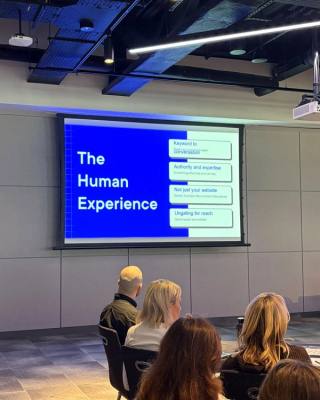What is generative engine optimisation?
Generative Engine Optimisation (GEO) might just be the hottest topic in content creation.
While traditional SEO content writing has focused on appealing to search engine algorithms and traffic, GEO targets the users of generative engines such as ChatGPT. These AI models increasingly act as sources of information for users, often directly connecting them with online content in the way that search engines once did. ChatGPT alone now has over 400 million weekly users. Even traditional search tools such as Google are now integrating AI into the search process, pulling answers from the web and presenting them directly to users. By writing content optimised to the demands of these models, content producers can ensure that their answers are those linked to in these queries.
GEO vs SEO
Both traditional search engines and AI models aim to connect their users with relevant information, but they do so in different ways. Rather than scanning content for certain keywords and page formats as traditional search engines do, AI models try to engage in a more contextual analysis of content pieces. This rewards informative, well sourced, and clearly written content, even if that content answers user questions in surprising ways. This is because LLMs, unlike older search tools, can find connections within language that match the unpredictable ways in which humans communicate ideas.
Better content is better
For content writers, this raises the question: Are we just writing for a more intelligent audience?
To some extent, yes we are.
SEO was already in the process of rewarding accurate and informative content, and GEO is only accelerating this. Large studies (like this one which considered thousands of search queries) show that GEO rewards better sourced content that includes evidence based claims, and boosts more fluid and clear writing styles.
For content writers, this should all have been best practice already! As will always be the case, clear informative writing that is appreciated by the end user will allow your content to rank higher. On the other hand, cynically looking for loopholes is (fortunately!) providing increasingly diminishing returns.
Write for your readers, and the rest can handle itself.
Robot vs robot
A final consideration relates to our methods of content creation. Any content creator with a brain has been exploiting the productivity gains provided by generative AI over the past year. And to be clear, I've used it myself throughout the process of writing this blog.
However, with AI now “reading” our content, we might be wise to treat AI written content cautiously. A more discerning "reader" makes quality, legitimate and thoughtful content more valuable than ever, and relying solely on AI for our writing can jeopardise this.
Of course, this sword cuts both ways. It will be tempting, for instance, to use LLMs to edit content for GEO purposes, and use AI tools to analyse the behavior of other AI tools. I suspect we will soon enter an AI arms race, with AI writers and AI readers pitched against one another.
If you're interesting in building a digital experience that doesn't just rank highly on LLMs, but also engages and converts users, then get in touch with our team today. We'd love to talk!








